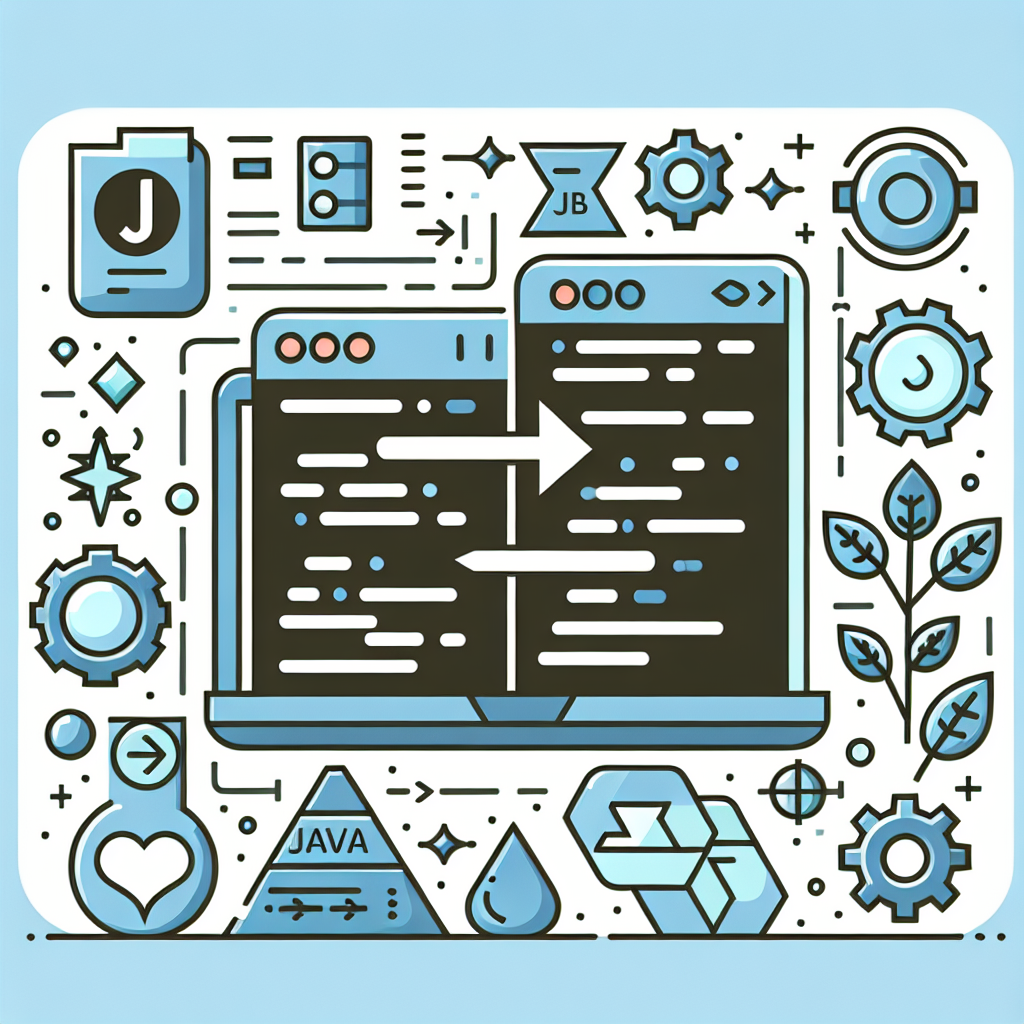Convert Java to VBA Easily - Powerful Tool Online
Effortlessly convert Java code to VBA with our powerful tool. Streamline your workflow and enhance productivity. Try our Java to VBA converter now!
Source Code
Converted Code
Output will appear here...
The Java to VBA conversion tool seamlessly transforms Java code into VBA, streamlining automation tasks across Microsoft applications. Ideal for developers and data analysts, this tool enhances productivity by enabling easy script integration and automating repetitive tasks. Benefit from improved workflow efficiency and interoperability with this essential conversion solution.

Java to VBA Conversion Tool Link to this section #
Effortlessly convert Java code to VBA with our specialized Java to VBA conversion tool, designed to streamline your workflow and enhance productivity. This tool is ideal for software developers and data analysts transitioning between Java and VBA within Excel environments.
Key Features Link to this section #
- Automated Conversion: Quickly transform Java code into VBA syntax, saving time and reducing errors associated with manual conversion.
- Syntax Highlighting: Easily identify key differences between Java and VBA, ensuring smoother code translation.
- Error Detection: Built-in error detection highlights potential issues during conversion, helping maintain code integrity.
How It Works Link to this section #
- Input Java Code: Paste your Java code into the tool's input field. Ensure your code is syntactically correct to optimize conversion accuracy.
- Initiate Conversion: Click the 'Convert' button to begin the process. The tool translates the Java logic into VBA, maintaining the core functionality.
- Review and Edit: Examine the output for any necessary adjustments. The tool provides suggestions to refine the code for optimal performance in VBA.
Example Link to this section #
Here’s a simple Java to VBA code transformation:
Java Code:
public class HelloWorld {
public static void main(String[] args) {
System.out.println("Hello, World!");
}
}
VBA Equivalent:
Sub HelloWorld()
MsgBox "Hello, World!"
End Sub
Benefits Link to this section #
- Cross-Platform Compatibility: Facilitates integration between Java applications and VBA-enabled Excel sheets.
- Enhanced Efficiency: Reduces the time and effort required to rewrite code manually, allowing developers to focus on core tasks.
- Accessibility: Perfect for professionals familiar with Java but new to VBA, bridging the gap with ease.
For more details on Java and VBA integration, explore Oracle's Java Documentation and Microsoft's VBA Guide.
Enhance your coding transition with the Java to VBA conversion tool, ensuring seamless adaptability across programming languages.
Frequently Asked Questions
How can I convert Java code to VBA?
Direct conversion from Java to VBA is not straightforward due to differences in language structure and capabilities. However, you can manually rewrite Java logic in VBA by understanding the Java code and using VBA syntax to implement similar functionality.
What are the main differences between Java and VBA?
Java is a versatile, object-oriented programming language used for building cross-platform applications, while VBA (Visual Basic for Applications) is primarily used for task automation within Microsoft Office applications. Java requires a Java Development Kit (JDK) and runs on the Java Virtual Machine (JVM), whereas VBA runs within the host Office application without needing a separate runtime environment.
Are there tools available to aid in converting Java applications to VBA?
There are no direct tools that automatically convert Java applications to VBA. However, you can use general-purpose tools and techniques such as pseudocode, flowcharts, or algorithm design to help translate Java logic into VBA code manually.